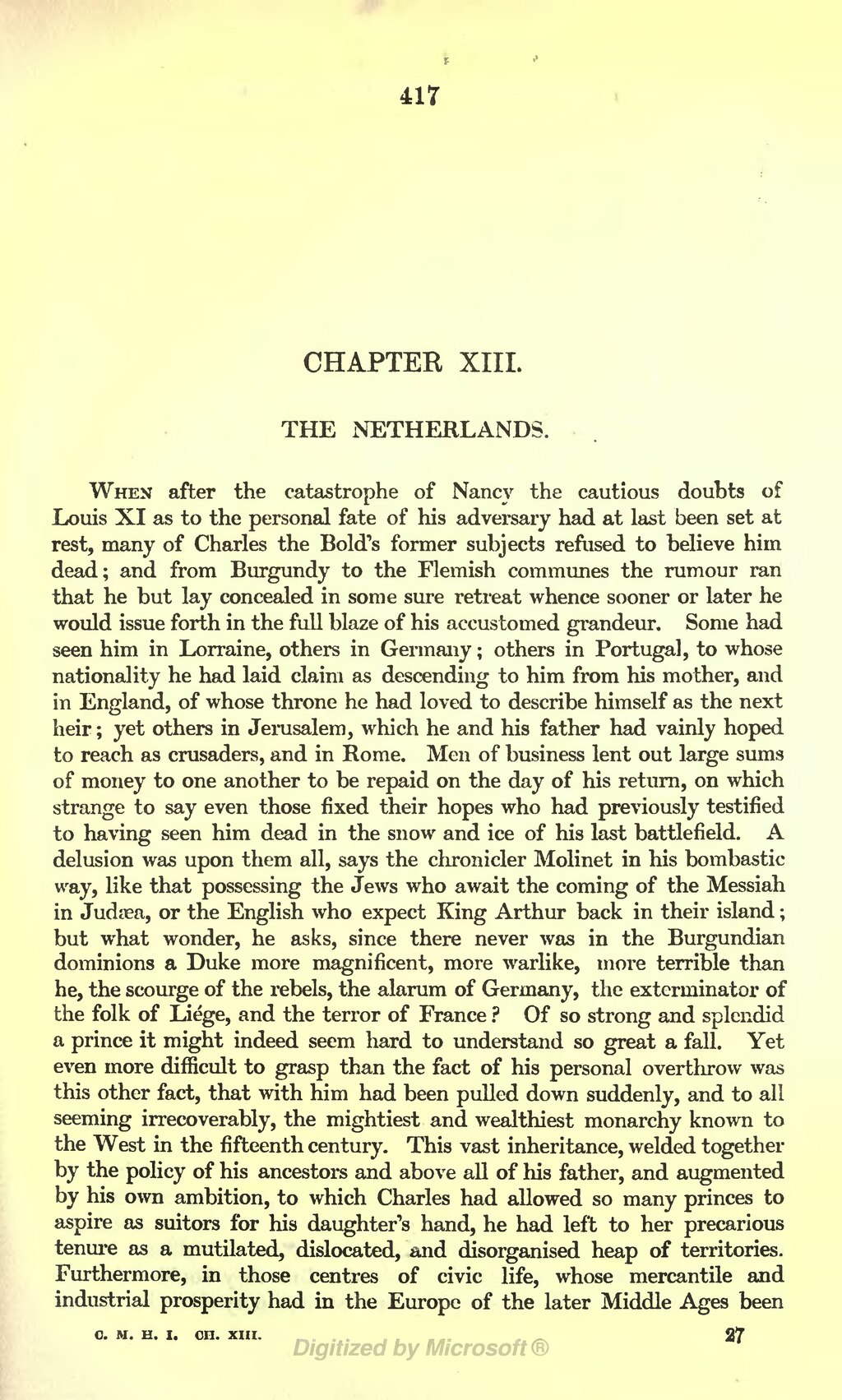CHAPTER XIII.
THE NETHERLANDS.
When after the catastrophe of Nancy the cautious doubts of Louis XI as to the personal fate of his adversary had at last been set at rest, many of Charles the Hold's former subjects refused to believe him dead; and from Burgundy to the Flemish communes the rumour ran that he but lay concealed in some sure retreat whence sooner or later he would issue forth in the full blaze of his accustomed grandeur. Some had seen him in Lorraine, others in Germany; others in Portugal, to whose nationality he had laid claim as descending to him from his mother, and in England, of whose throne he had loved to describe himself as the next heir; yet others in Jerusalem, which he and his father had vainly hoped to reach as crusaders, and in Rome. Men of business lent out large sums of money to one another to be repaid on the day of his return, on which strange to say even those fixed their hopes who had previously testified to having seen him dead in the snow and ice of his last battlefield. A delusion was upon them all, says the chronicler Molinet in his bombastic way, like that possessing the Jews who await the coming of the Messiah in Judasa, or the English who expect King Arthur back in their island; but what wonder, he asks, since there never was in the Burgundian dominions a duke more magnificent, more warlike, more terrible than he, the scourge of the rebels, the alarum of Germany, the exterminator of the folk of Liege, and the terror of France? Of so strong and splendid a prince it might indeed seem hard to understand so great a fall. Yet even more difficult to grasp than the fact of his personal overthrow was this other fact, that with him had been pulled down suddenly, and to all seeming irrecoverably, the mightiest and wealthiest monarchy known to the West in the fifteenth century. This vast inheritance, welded together by the policy of his ancestors and above all of his father, and augmented by his own ambition, to which Charles had allowed so many princes to aspire as suitors for his daughter's hand, he had left to her precarious tenure as a mutilated, dislocated, and disorganised heap of territories. Furthermore, in those centres of civic life, whose mercantile and industrial prosperity had in the Europe of the later Middle Ages been
